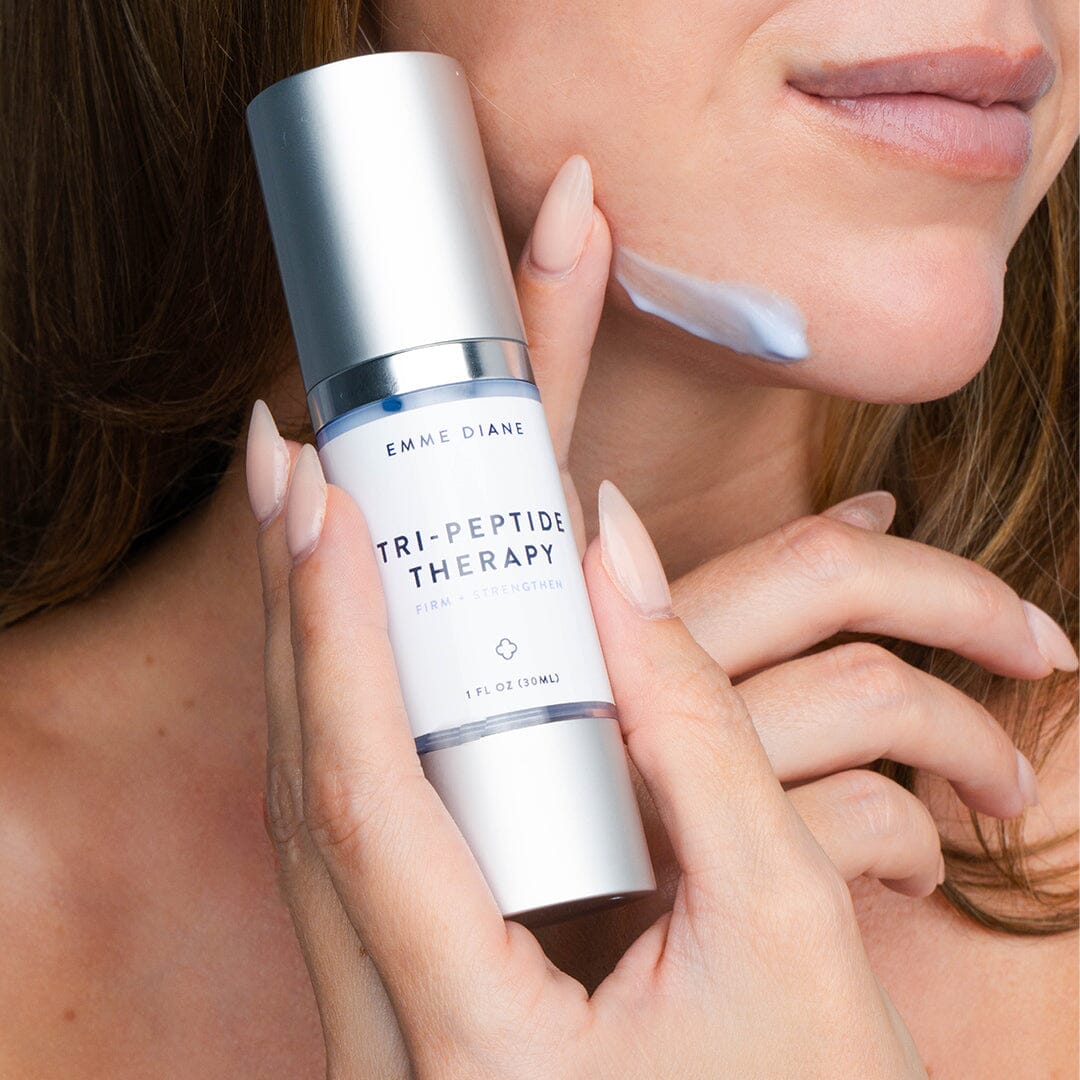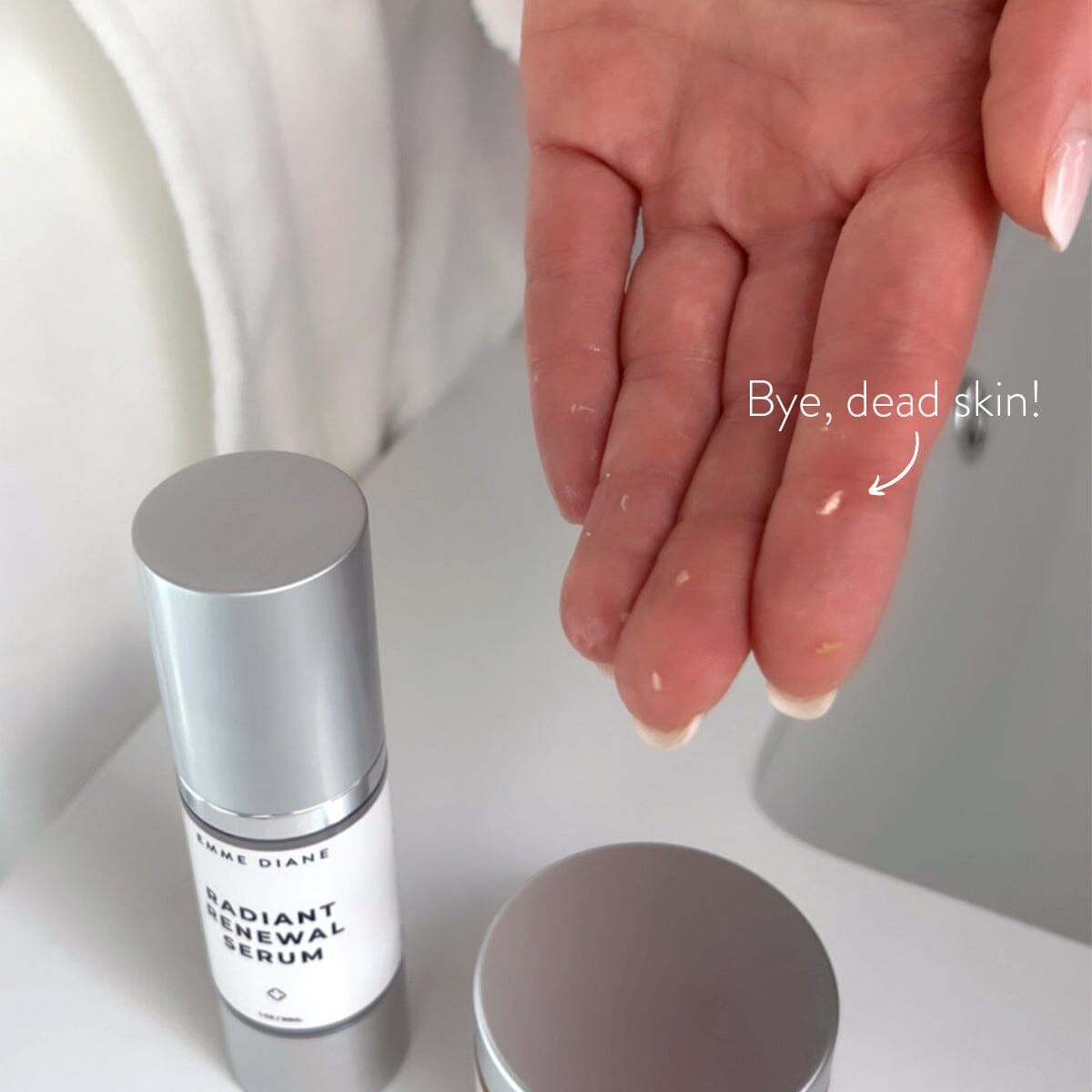What to know about Biotin and Breakouts
by Emily Linehan on January 21, 2020
Updated July 13, 2022
Mainstream media today has led many of us to believe that taking Biotin for your skin is the right move… but is it? Yesterday I ended up playing detective with a client. We were trying to find the root cause of her spontaneous breakouts. Through our investigation, we uncovered the probable culprit. She had recently started a new supplement. The ingredient causing the problem? Biotin.
The Truth About Biotin
In recent years, Biotin has been touted as the magical supplement for gorgeous, glowing hair, skin and nails. Unfortunately, there are no published studies to validate the the supposed benefits of taking Biotin. It’s a placebo effect, at best. There are however a few known issues with Biotin, which we’ll dive into below.
Why Biotin Triggers Acne
Biotin Increases Clogged Pores
Biotin increases our cell turnover rate. While this sounds lovely, the root cause of acne is hyper shedding of dead skin cells in our pores, resulting in microcomedones (little clogs). These initiate an acne breakout. In other words, taking Biotin throws the genetic defect of shedding dead cells too quickly into hyperdrive, increasing the number of clogged pores.
Biotin Creates Deficiencies in Pantothenic Acid
Pantothenic acid is what helps our skin clear. Biotin (vitamin B7) and pantothenic acid (vitamin B5) are both absorbed in our intestines by the same receptor. When you take high levels of Biotin supplements, it blocks the absorption of pantothenic acid because our receptor can only absorb one or the other at a given time.
We need pantothenic acid to help regulate our oil gland production. If you are acne-prone, this is vitally important because our natural oil (sebum) is the “glue” that binds the dead sticky cells together during the clogged pore formation AND it’s the food for the acne bacteria to proliferate.
In short, you could be giving yourself a deficiency of pantothenic acid by taking an excess of Biotin. The result? More acne.
Biotin Is Food For Acne Bacteria
Acne bacteria loves Biotin and it is a key nutrient that sustains it. While your intention is to take a beauty supplement for hair, skin and nail, you are actually feeding the bacteria and encouraging these acne-causing germs to live their best life!
Remove Biotin From Your Diet
Because we don’t have a biotin deficient culture, we get most of what we need each day (approximately 30-100 mcg) from our diet. Therefore, it is not recommended to take any additional biotin supplements.
While Biotin is easy to recognize in vitamins marketed for hair, skin and nails, it is also hidden in other vitamins and supplements. In fact, most multivitamins and prenatals vitamins contain Biotin. If you are acne-prone, be sure to check all your vitamins and supplements (even protein powders) for Biotin!
Acne Safe Alternative
If you find that your supplements do contain biotin, here are a few acne safe alternatives:
Biotin Alternative: BioSil Hair Skin Nails
With the clinically proven active ingredient called ch-OSA, it is specifically formulated to help support and regenerate your body's three beauty proteins (collagen, elastin and keratin) to restore a more youthful appearance to your hair, skin and nails without Biotin.
Vitamin Alternative: Olly Prenatal Gummy Vitamins
xoxo, Emme



